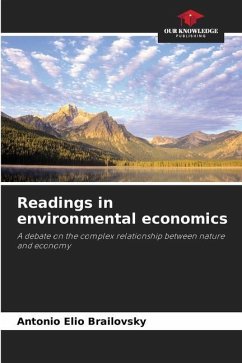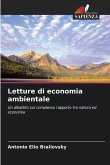People concerned about environmental issues sense the importance of economics in decisions affecting the environment. However, the most frequent explanations are of a generic nature, alluding to vested interests but without detailing the mechanisms by which these interests operate. Something similar occurs in environmental management courses, in which environmental economics subjects are usually seen as a kind of inevitable evil.Frequently, environmentalist proposals implicitly assume idealized societies in which such interests do not exist or simply do not operate. Reciprocally, any form of environmental management requires a thorough knowledge of the obstacles that are generated, simultaneously, of the economic tools for management.This book is intended for those interested in the environment and environmental management who understand the need to strengthen this facet of their training.








